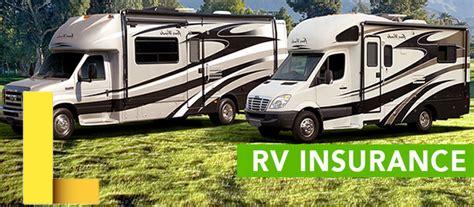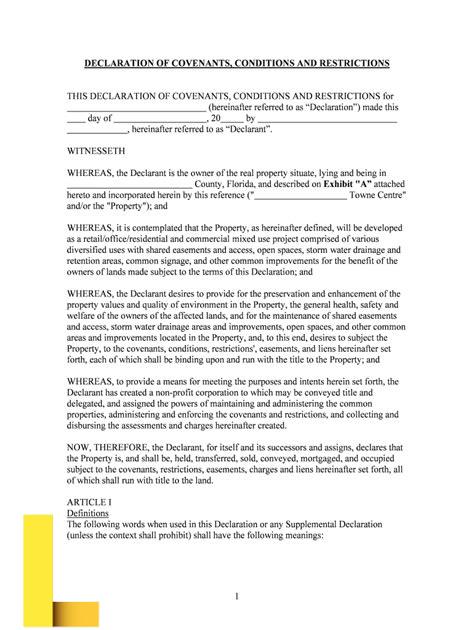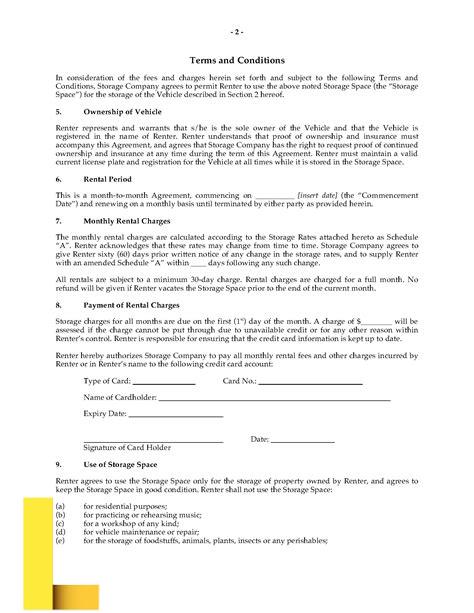The Ultimate Guide to a Perfect Recreational Vehicle Rental Agreement

Kind Reader, if you’re planning to go on an adventure with a recreational vehicle, it’s important to understand the terms of the rental agreement. A recreational vehicle rental agreement is a legally binding document that outlines the responsibilities and rights of the renter and the rental company. It includes important details such as the rental period, rental fees, insurance coverage, and damages. As a renter, it’s crucial to read and understand the terms of the agreement before signing it to avoid any misunderstandings or complications during the rental period.
Understanding the Recreational Vehicle Rental Agreement

Before renting out a recreational vehicle for a trip with family or friends, it’s important to understand the rental agreement. A rental agreement is a legal contract that outlines the terms and conditions of renting an RV to a customer. It sets the expectations for both the renter and the owner and clarifies the rights and obligations of both parties.
The Essential Elements of a Recreational Vehicle Rental Agreement
While rental agreements can vary depending on the rental company and the jurisdiction, most agreements include several essential elements. These include:
| No | Essential Elements of a Recreational Vehicle Rental Agreement |
|---|---|
| 1 | Rent amount and payment terms |
| 2 | Duration of the rental period |
| 3 | Details about additional fees |
| 4 | Rental insurance coverage |
| 5 | Responsibilities of the renter and the owner |
| 6 | Cancellation and refund policies |
| 7 | Rules and restrictions for the rental vehicle |
The Dos and Don’ts of a Recreational Vehicle Rental Agreement
When renting an RV, it’s important to understand the rules and restrictions outlined in the rental agreement. Here are some dos and don’ts to keep in mind:
Do:
- Read and understand the rental agreement
- Keep an open line of communication with the rental company
- Inspect the RV thoroughly before you drive off the rental lot
- Follow all the rules and restrictions outlined in the agreement
- Be mindful of the RV’s size and weight when driving and parking
- Take care of the RV during your rental period
Don’t:
- Make changes to the rental agreement without notifying the rental company, as this can result in additional fees or penalties
- Exceed the RV’s weight limit or towing capacity
- Drive the RV under the influence of drugs or alcohol
- Smoke or use candles inside the RV, as this can cause fire hazards
- Bring pets or unauthorized passengers without prior approval from the rental company
- Return the RV late without notifying the rental company, as this can result in additional fees or penalties
What Should Be Included in a Recreational Vehicle Rental Agreement?

Each recreational vehicle rental agreement may vary depending on the rental company, but there are standard items that should be included to protect both the renter and the company. Here are the essential elements that should be present in a recreational vehicle rental agreement.
1. Rental Dates
This section should specify the agreed-upon rental dates, including the pickup and return times and dates. The agreement should also indicate whether the rental period is hourly, daily, weekly or monthly, and the late return fees if the renter fails to return the RV at the scheduled time.
2. Rental Cost and Payment Terms
Another crucial element of a rental agreement is the rental cost and payment terms. The agreement should indicate the rental amount, the due date, and the penalties for late payment. This section should also discuss the security deposit and any additional fees such as insurance, mileage, generator usage, cleaning, and fuel charges. It’s essential to validate this section against the customer’s reservation details to avoid any billing discrepancies.
3. Insurance Coverage
The rental agreement should state what insurance coverage is included in the rental and the type of damages or losses covered by the policy. The policy should also specify the renter’s liability for damage or loss not covered by insurance. It’s essential to confirm what the policy covers and not assume that everything is covered.
4. RV Condition During Rental
Renters have a responsibility to maintain the vehicle in good condition during the rental period. This area should describe the condition of the RV before pickup, outlining any existing damages and preexisting conditions such as wear and tear. The renter should inspect the vehicle upon pickup, and any damage should be detected and documented in writing to dispute damages to the RV.
5. Cancellation or Modification Policy
This section should discuss the policy regarding cancellation or modification of the rental. Each rental company has its rules, including the fees for cancellation or modification, the deadline for cancellation, and the refund policy.
6. Renter’s Responsibilities
This section sets out the renter’s obligations under the rental agreement. The contract should indicate that the renter must drive the vehicle responsibly and adhere to local traffic laws. The agreement should also outline the RV’s weight limitations, towing policy, and restrictions on the usage of the RV.
7. Termination of Agreement
This section should state what conditions can lead to the termination of the contract by the rental company or the renter. The agreement should also describe the consequences of premature termination.
| No | LSI Keywords |
|---|---|
| 1 | RV rental agreement |
| 2 | RV renter responsibilities |
| 3 | Insurance coverage for RV rental |
| 4 | Cancellation of RV rental agreement |
| 5 | Modification of RV rental agreement |
| 6 | Termination of RV rental agreement |
| No | Information |
|---|---|
| 1 | What is a recreational vehicle rental agreement? |
| 2 | What should be included in a recreational vehicle rental agreement? |
| 3 | What are the rules of using the rental RV? |
| 4 | How much should be paid for the rental RV? |
| 5 | What are the penalties for breaking the agreement? |
| 6 | How is the security deposit handled? |
| 7 | What are the insurance requirements? |
| 8 | What are the procedures for returning the rental RV? |
Payment and Cancellation Policy

After agreeing to the recreational vehicle rental agreement, renters have to make a certain deposit to confirm their reservation. Most rental companies provide an option to pay the deposit through credit or debit card. The amount of the deposit varies, depending on the type of RV, duration, and distance of travel. The deposit will be fully refunded if cancellation is done before the specified timeframe. Rental companies usually specify that cancellation has to be made before a certain period lapsed, for example, 48 hours or a week before the reservation date.
Rental Payment
A rental payment is required after the deposit has been made to confirm the rental agreement. The rental payment is typically adjusted based on the type of RV, duration of rental, and mileage covered. The payment can be made through credit or debit card. Rental companies require renters to pay the full amount before picking up the rental vehicle.
Cancellation Policy
The cancellation policy varies depending on the rental company. Some rental companies follow a strict cancellation policy, which means you won’t receive any refund after crossing the specified period for cancellation. Other rental companies are more lenient and provide flexible policies where you can reschedule or receive a full refund with a specific period before the rental date. Check with your rental company about their cancellation policy before renting their RV.
Excess Mileage and Additional Fees

One of the most important factors to consider when renting an RV is the mileage limit provided by RV rental companies. Rental companies generally offer unlimited mileage for short duration rentals like weekends. However, for long term rentals like 10 days or more, the mileage is limited, and excess mileage will be charged separately. The extra mileage charge depends on the rental company, and it may vary from company to company. The renter should use the RV economically throughout the trip to avoid extra charges.
Additional Fees
Rental companies usually charge additional fees in addition to the rental payment and deposit. Additional fees may include applicable taxes, campsite fees, delivery or pickup fees, and other charges based on the rental company’s policies. For example, some companies charge for cleaning fees or generator usage fees. Be sure to clarify all additional fees before entering into the rental agreement.
Insurance and Liability

When renting a recreational vehicle, it is important to understand the insurance and liability terms and conditions. Typically, rental companies offer different levels of insurance coverage. Most rental agreements require renters to purchase insurance coverage before they can drive the RV. Depending on the insurance coverage, renters may or may not be liable for accidents, damages, or theft while operating the vehicle.
Liability Insurance
Liability insurance is designed to protect the renter from financial damages resulting from accidents in which they are found to be at fault. Depending on the rental company, liability insurance may or may not cover all medical expenses, lost wages, pain and suffering, and other damages incurred by the other party involved in the accident. It is crucial that renters carefully review the liability coverage before signing the rental agreement to avoid any surprises.
Collision and Comprehensive Insurance
Collision and comprehensive insurance are designed to cover damages or loss of the vehicle in case of an accident, theft, or natural disaster. These types of insurance typically have deductibles, which means that the renter will have to pay a portion of the repair or replacement cost before the insurance covers the rest. It is important for renters to understand the terms and conditions of the insurance coverage, including any limitations or exclusions.
Security Deposit

Most rental agreements require renters to provide a security deposit to cover any damages or loss of the vehicle during the rental period. The security deposit is typically in the form of a credit card hold or a separate payment. The amount of the security deposit varies depending on the rental company and the type of vehicle rented. It is important for renters to understand the terms and conditions of the security deposit before agreeing to the rental agreement.
Refunds and Deductions
When the rental period is over, the rental company will inspect the vehicle for damages or missing items. The rental company will deduct any damage or loss costs from the security deposit. If there are no damages or loss, the rental company will refund the security deposit to the renter. Renters should inspect the vehicle before and after the rental period to ensure that any damages or loss are documented and reported to the rental company.
Rental Period

One of the most important sections of a recreational vehicle rental agreement is the rental period. It clearly outlines the time frame that the RV will be rented and the rental price that will be charged for that period of time. Make sure to read and understand this section of the contract carefully to avoid any confusion or disputes later on.
Length of Rental
The length of the rental period is usually stated in weeks or days. Make sure you are clear about the exact dates you will be renting the RV and what time you are expected to pick it up and return it.
Rental Pricing
Rental pricing is based on the rental period, and it’s important to understand the charges associated with your RV rental. This is usually calculated on a daily or weekly rate, and it’s critical to know how much you will be charged, what payment methods are accepted, and the rental deposit that will be required.
Conditions and Restrictions

When renting a recreational vehicle, the rental agreement will outline a set of rules, conditions, and restrictions that you need to abide by. In this section of the agreement, you’ll find information like who is allowed to drive the RV, how many passengers can it accommodate, and where it can be driven.
Driver Requirements
Driver requirements can vary, based on state laws, country regulations, and rental company policies. Typically, the driver is required to hold a valid driver’s license, have a good driving record, and meet the minimum age requirement. Some RV rental agreements may also require you to have a particular type of license.
Restrictions on Use
Restrictions on use of the RV include mileage limits, geographical boundaries and forbidden activities, like smoking inside the vehicle.
Terms and Conditions

When renting an RV, it’s critical to read and comprehend the terms and conditions of the contract. Below are certain important points to keep in mind:
Security Deposit and Payment
Before renting an RV, a security deposit and payment must be made. The deposit is an initial payment made by the renter to the rental business that will be returned once the RV is returned in the same condition as it was when it was rented. The rental fee varies depending on the RV type, length of the rental period, location, and season.
Restrictions and Penalties
It’s important to understand the limits and penalties that may be imposed if the rental agreement is broken. This may include limitations on the number of people that can be in the RV, its use, and even where it can go. Additionally, if the RV is destroyed or harmed, there may be additional penalties. Breaking the rental agreement may result in additional fees or the termination of the rental agreement.
Insurance
Insurance is available; however, the renter should always read the rental agreement before purchase. Insurance may only cover a certain amount of damages, and in certain cases, may require the renter to pay for the damages in full. It’s critical to comprehend the rental agreement’s insurance terms and any hidden fees that may be assessed in the event of an accident or other damages.
Cancellation Policy
The cancellation policy should be included in the rental agreement. Be sure to double-check the cancellation policy before agreeing to rent the RV. If the rental agreement is cancelled, there may be fees imposed, which are typically dependent on when the agreement cancel is accomplished.
Responsibilities of the Renter
The RV renter is responsible for ensuring the RV is properly maintained throughout the rental period. This entails refuelling the RV’s gas tank, maintaining its cleanliness, and reporting any concerns or issues to the rental business. The renter must also promise not to allow people who are not listed on the rental agreement to use the RV. Finally, the renter is responsible for ensuring the RV is returned to the agreed-upon location at the correct time.
Responsibilities of the Rental Company
The rental business is responsible for ensuring the RV is clean, safe, and in good condition before it is rented. Additionally, they must ensure that the renter has obtained the necessary insurance to cover their rental time. Throughout the rental period, the rental business must be available to answer renter’s inquiries and respond to any concerns or issues.
Security Deposit in Recreational Vehicle Rental Agreement

A security deposit is a specified amount of money provided by the renter as a guarantee for the rental agency in case of any damage done to the vehicle or any unpaid charges at the completion of the rental period. The security deposit can be a partial or full payment depending on the rental type, duration of rental, and the RV rental agency’s policies. The security deposit terms will be mentioned in the RV rental agreement that the renter signs before taking the vehicle.
Amount and Payment Terms of Security Deposit
The amount of the security deposit will vary based on the rental period and the rental vehicle model. The amount can range between $100 to $5000. It is important to review the RV rental agreement carefully and make sure you understand the total cost that includes taxes, insurance, and the security deposit. Payment terms for the security deposit also vary depending on the rental agency. Some agencies will hold the amount on the renter’s credit card, while others will accept cash payments in some cases. The renters must ensure that they ask and clarify all the terms regarding security deposits with the rental agency before the start of the rental period.
Refund of Security Deposit
Typically, the RV rental agency returns the security deposit within 2-3 weeks of the vehicle’s return unless there is any damage or unpaid charges. The rental agency will assess the RV’s condition upon return to determine if any damage has been incurred. Suppose there are any damages or unpaid charges. In that case, the rental agency will deduct the charge amount from the security deposit, and the balance amount will be refunded to the renter. It is crucial to inspect the vehicle along with the rental agency’s representative, take pictures, and document any damage before taking possession of the RV.
Insurance in Recreational Vehicle Rental Agreement

Renters must ensure that they have adequate insurance coverage before taking possession of the recreational vehicle. Insurance covers the cost of damages, liability claims, and injuries that may occur during the rental period. RV rental agencies also offer additional insurance coverage options that can be purchased together with the rental agreement.
Types of Insurance Coverage
There are two types of insurance coverage that are essential for recreational vehicle rental agreements:
- Collision Damage Waiver (CDW) covers any damages that occur to the RV, except for the deductible amount. Renters should note that CDW is not insurance but a waiver that shifts the financial responsibility for damages from the renter to the RV rental agency.
- Supplemental Liability Insurance (SLI) provides extra coverage against third-party injuries and property damage. It is advisable to purchase this additional insurance coverage if the renter’s personal auto insurance coverage is not enough to cover the liability claims.
Insurance Coverage Terms in the Rental Agreement
All the terms and conditions of the insurance coverage, including the coverage limits and exclusions, will be mentioned in the rental agreement. Renters should make sure they read and understand all the terms before signing the agreement.
Recreational Vehicle Rental Agreement FAQ
What is a recreational vehicle rental agreement?
A recreational vehicle rental agreement is a legal contract between the vehicle owner and the renter for the rental of a recreational vehicle.
How do I sign a recreational vehicle rental agreement?
You can sign a recreational vehicle rental agreement by either signing a physical copy or by electronically signing a digital copy.
What should I look for in a recreational vehicle rental agreement?
You should read the fine print and ensure that you are comfortable with all the terms and conditions stated in the agreement.
What happens if I damage the recreational vehicle?
You will be responsible for paying for any damages caused to the vehicle during your rental period.
What happens if I return the recreational vehicle late?
You may be charged a late fee if you return the vehicle late. It is important to read the agreement carefully to understand the late rental policy.
Can I cancel my recreational vehicle reservation?
Yes, but there may be cancellation fees depending on the terms of the agreement. It is important to read the fine print carefully before making a reservation.
Can I modify my recreational vehicle reservation?
It depends on the rental company’s policies. Some companies may allow modifications, but there may be fees associated with making changes.
What happens if the recreational vehicle breaks down during my rental period?
You should contact the rental company immediately to report the issue. Depending on the terms of the agreement, the rental company may provide a replacement vehicle.
Do I need to purchase extra insurance for the recreational vehicle?
It depends on the rental company’s policies. Some companies may offer additional insurance coverage as an optional add-on.
Can I bring pets in the recreational vehicle?
It depends on the rental company’s policies. Some companies may allow pets, but there may be additional fees associated with bringing a pet.
Can I smoke in the recreational vehicle?
It depends on the rental company’s policies. Some companies may allow smoking, but you may be charged a cleaning fee if you smoke in the vehicle.
What happens if I get a ticket while driving the recreational vehicle?
You will be responsible for paying any traffic violations or tickets incurred during your rental period.
What happens if I get into an accident while driving the recreational vehicle?
You should immediately contact the rental company to report the accident and follow their instructions on how to proceed.
Can I drive the recreational vehicle anywhere?
It depends on the rental company’s policies. Some companies may have restrictions on where you can take the vehicle.
How should I clean the recreational vehicle before returning it?
You should clean the vehicle to the same condition it was in when you received it. Be sure to check the agreement for any specific cleaning instructions.
What happens if I lose the recreational vehicle keys?
You will be responsible for paying for any costs associated with replacing the keys, including any locksmith fees.
Can someone else drive the recreational vehicle?
It depends on the rental company’s policies. Some companies may allow additional drivers, but there may be additional fees and requirements.
What happens if the recreational vehicle is stolen?
You should immediately contact the rental company to report the theft and file a police report. Depending on the terms of the agreement, you may be responsible for paying a deductible.
What happens if I do not return the recreational vehicle?
You may be charged additional fees and legal action may be taken against you. It is important to return the vehicle according to the terms of the agreement.
Can I extend my rental period for the recreational vehicle?
It depends on the rental company’s policies. Some companies may allow extensions, but there may be additional fees associated with extending your rental period.
What happens if I return the recreational vehicle with less fuel than it had when I received it?
You may be charged a fee or penalty for returning the vehicle with less fuel. Be sure to check the agreement for any specific fuel policies.
Can I pay for my recreational vehicle rental with a debit card?
It depends on the rental company’s policies. Some companies may only accept credit cards or require a deposit if paying with a debit card.
What happens if I am involved in a traffic accident when driving a rental recreational vehicle?
You will need to file an accident report with the appropriate authorities and contact the rental company immediately. Be sure to follow the instructions of the rental company and insurance provider.
To ensure a smooth rental process, it’s important to have a clear recreational vehicle rental agreement in place. This agreement should outline the terms and conditions for the rental, including payment and insurance requirements.
Happy Trails, Kind Reader!
We hope that you enjoyed learning about recreational vehicle rental agreements and found our article helpful. Renting an RV can be an exciting adventure, but it’s essential to familiarize yourself with the terms and conditions of the rental agreement to avoid any unpleasant surprises. Always read the fine print, keep a copy of the rental agreement handy, and ask questions if anything is unclear. Thank you for reading our article, and we look forward to sharing more valuable information with you soon. Safe travels!




